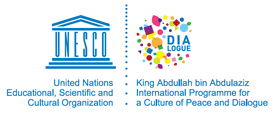The central purpose of journalism is to tell the truth so that people will have the information to be sovereign.”
— Jack Fuller, in News Reporting and Writing
Background and Rationale
With the advent of the new information and communication technologies, the reach and impact of traditional media (radio, television and newspaper) have been multiplied, and information and news have thus become more widely available than ever before. In this information age, journalists, information professionals and the news media (new and old) play a central role in providing us with access to information beyond our immediate experience, and in facilitating citizen participation in good governance and open, democratic and stable societies.
This module will explore the role and function of news media (new and traditional) and other information providers in our personal lives and in democratic societies, such as enhancing democratic freedom and info-ethics, building civic responsibility and citizenship, and requiring and promoting transparency and accountability. It will also give an overview of the news media’s evolving role, from serving merely as a mirror of society to being a gatekeeper of information, a watchdog with a check-and-balance function, enabler of public debate, and facilitator of citizen participation.
The module will enable teachers to explore such issues as freedom of information and freedom of expression, as well as the importance of accuracy, accountability and transparency in news reporting.
Thanks to new technologies, we are also witnessing an increase in user-generated content, such as eyewitness reports from citizens. While this phenomenon presents us with a great diversity of voices and perspectives, it also reinforces the need to critically evaluate the many sources of news and information available today. In becoming media and information literate, teachers will be able not only to analyze and evaluate information and the news they receive on a daily basis, but also to exercise their civic responsibility to demand fair and accurate news reporting, as well as to advocate for free, independent and pluralistic media.

